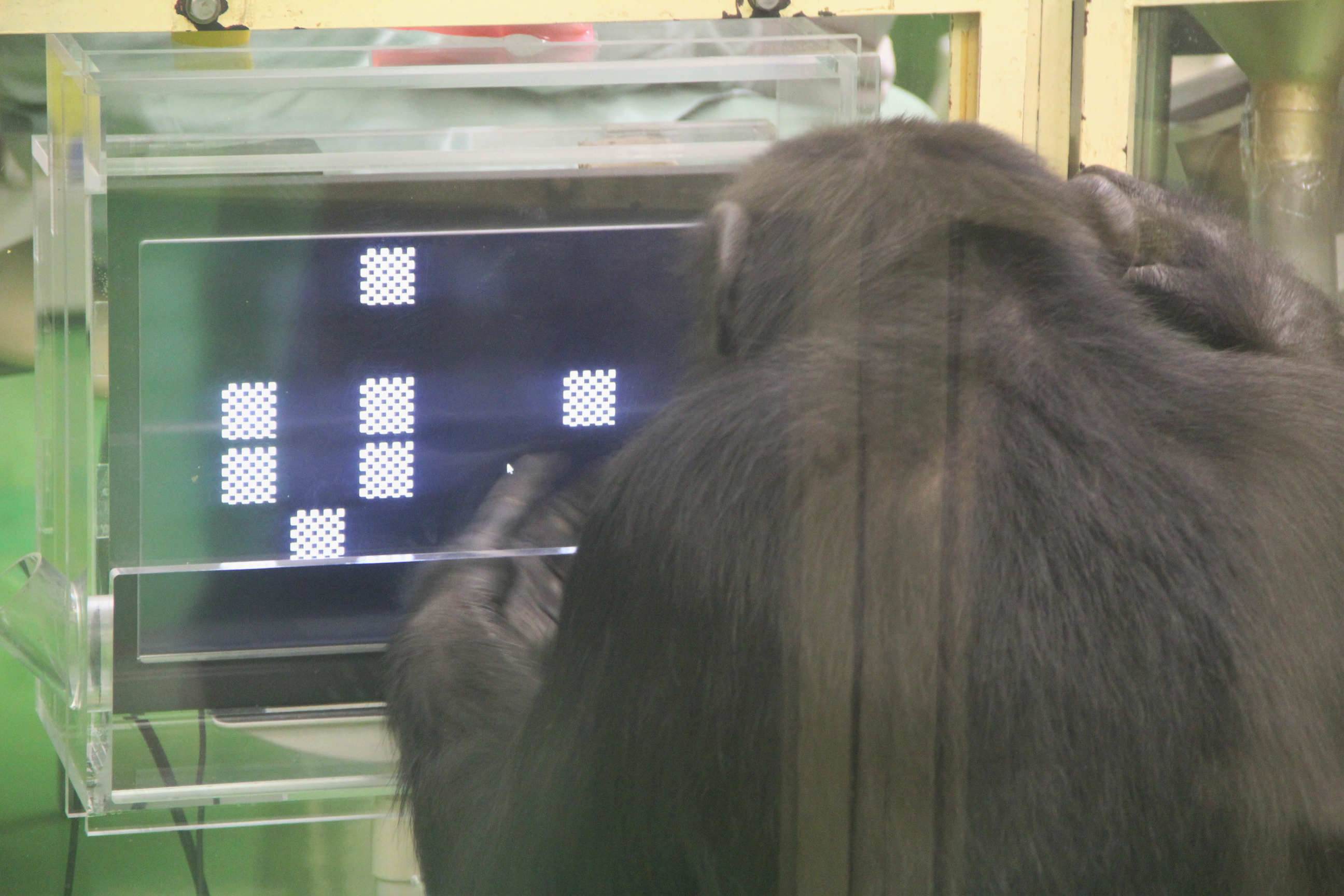Chimps perform better at complex tasks when an audience is watching – study
Findings suggest ‘audience effect’ predates the development of human societies based on reputation, researchers say.

Your support helps us to tell the story
From reproductive rights to climate change to Big Tech, The Independent is on the ground when the story is developing. Whether it's investigating the financials of Elon Musk's pro-Trump PAC or producing our latest documentary, 'The A Word', which shines a light on the American women fighting for reproductive rights, we know how important it is to parse out the facts from the messaging.
At such a critical moment in US history, we need reporters on the ground. Your donation allows us to keep sending journalists to speak to both sides of the story.
The Independent is trusted by Americans across the entire political spectrum. And unlike many other quality news outlets, we choose not to lock Americans out of our reporting and analysis with paywalls. We believe quality journalism should be available to everyone, paid for by those who can afford it.
Your support makes all the difference.Chimpanzees, like many humans, perform better at complex tasks when there is an audience watching, scientists have found.
Researchers discovered the great apes at a primate research centre in Japan were better at touchscreen tests when they were being watched by humans.
The team said its findings, published in the journal iScience, suggests “audience effect” – where a person’s behaviour changes because they believe someone else is watching – is a more primitive trait than previously thought.
The researchers said their experiments on chimps showed audience effect predates the development of human societies based on reputation.
The fact that they seem to be affected by human audiences even depending on the difficulty of the task suggests that this relationship is more complex than we would have initially expected
Typically in these societal structures, people act more co-operatively or be on their best behaviour if they know their actions are publicly rated.
Christen Lin, of Kyoto University in Japan, said: “It was very surprising to find that chimpanzees are affected in their task performance by audience members, and by human audience members nonetheless.
“One might not expect a chimp to particularly care if another species is watching them perform a task, but the fact that they seem to be affected by human audiences even depending on the difficulty of the task suggests that this relationship is more complex than we would have initially expected.”
As part of the study, the team wanted to find out if the audience effect existed in other non-human species.
Researchers said that while chimps live in hierarchical societies, little is known about whether they may be influenced by those watching them.
Akiho Muramatsu, of Kyoto University, said: “Our study site is special in that chimpanzees frequently interact with and even enjoy the company of humans here, participating almost daily in various touchscreen experiments for food rewards.”
“As such, we saw the opportunity to not only explore potential similarities in audience-related effects but also to do so in the context of chimps that share unique bonds with humans.”
The team analysed thousands of video sessions spanning six years where six chimps at the Centre for the Evolutionary Origins of Human Behaviour at Kyoto University were observed completing touchscreen tasks.
They found the animals performed better on the most difficult tasks as the number of people watching them increased.
However, for the easiest tasks, the chimps performed worse when being watched by more people.
The researchers said they cannot explain the mechanisms that underlie these audience-related behaviours, even for humans.
They said further research is needed to understand how the trait developed.
Shinya Yamamoto, of Kyoto University, said: “Our findings suggest that how much humans care about witnesses and audience members may not be quite so specific to our species.
“These characteristics are a core part of how our societies are largely based on reputation, and if chimpanzees also pay special attention towards audience members while they perform their tasks, it stands to reason that these audience-based characteristics could have evolved before reputation-based societies emerged in our great ape lineage.”